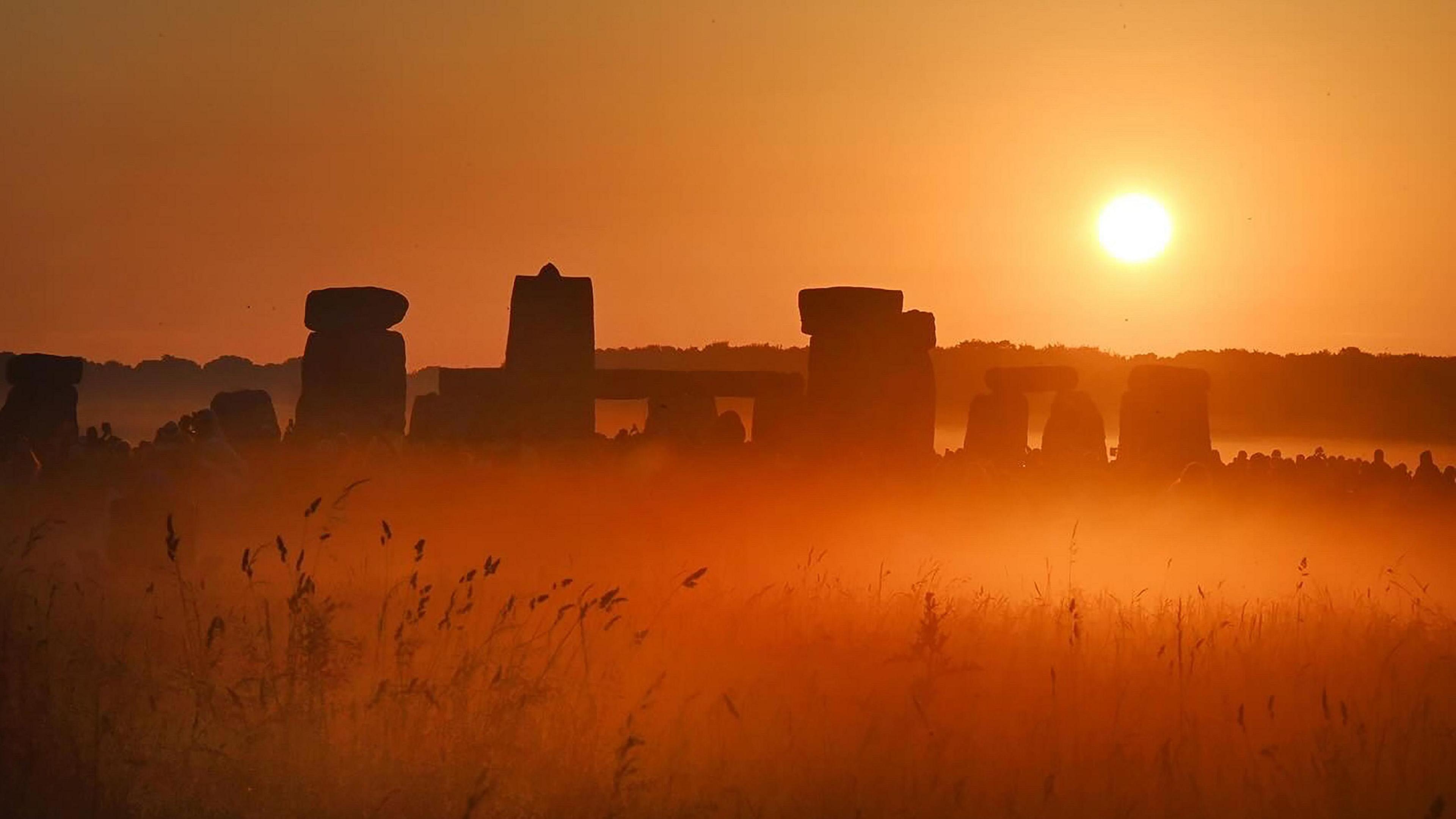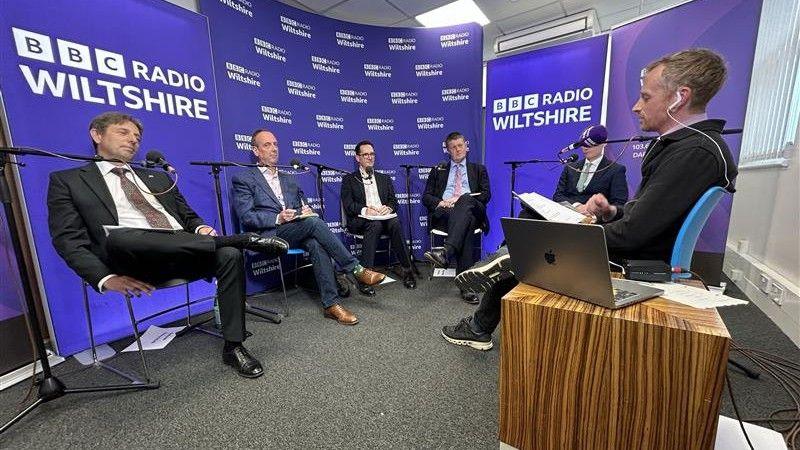How the elections could impact housing and A303 traffic
Wiltshire local election debate - follow live
- Published
Wiltshire's housing issues and A303 traffic are a few of the key topics candidates for next week's elections have been debating. The county has 98 seats and the council has been Conservative-led for a long time, but things are expected to be tighter this time after the Liberal Democrats took seats in the 2024 general election.
In a debate this week, the BBC heard from candidates from each of the five main parties standing in Wiltshire, as well as an interview about the independent candidates.
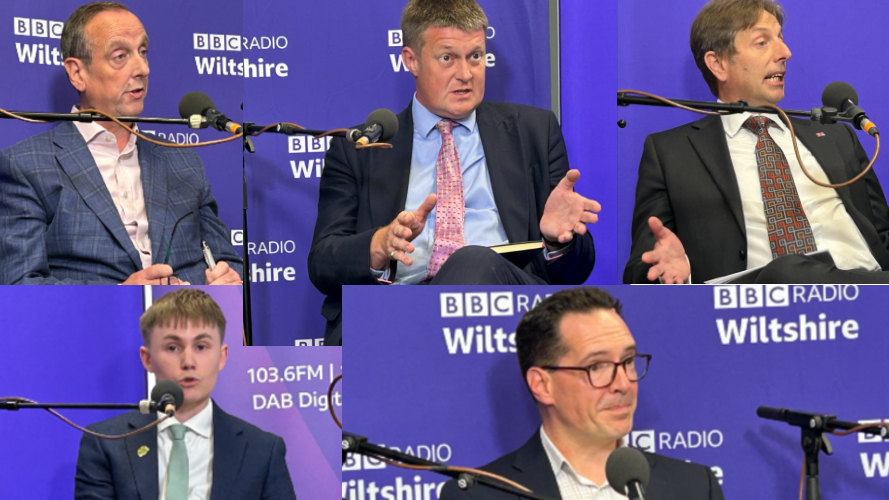
Candidates from the five main parties were in the debate: from left to right, top: Ian Thorn (Lib Dems), Richard Clewer (Conservatives), Edward Kirk (Reform), bottom: Declan Baseley (Greens) and Jon Fisher (Labour)
Where's the money?
Most candidates said there needed to be more money from central government, particularly in light of adult social care.
Ian Thorn, from the Liberal Democrats, said with the extra funded he wanted to see more people treated with "dignity" while being "cautious and careful with money".
The Greens were represented by Declan Baseley, who agreed there needed to be more government funding for services like adult social care.
He said: "I think we'd grow richer as a society if we all contribute more to ensure everybody's needs are met."
Meanwhile, Conservative Richard Clewer said that with running costs increasing all the time, the council should be honest with people.
"I don't think it's unreasonable to see council tax rising with inflation," he said.
Reform's Edward Kirk feels there needs to be more examination of any cash being wasted.
"Taxes are high enough as they are. We can't put any more burden on the residents of Wiltshire," he added.
Jon Fisher for Labour said the government is "being cautious with money" and referred to the "£22bn blackhole" in public finances.
The aspiration is to get to a national care service, he added.
"In the meantime I think there are efficiencies to be found," he said, such as whether care services can be "brought back in house".
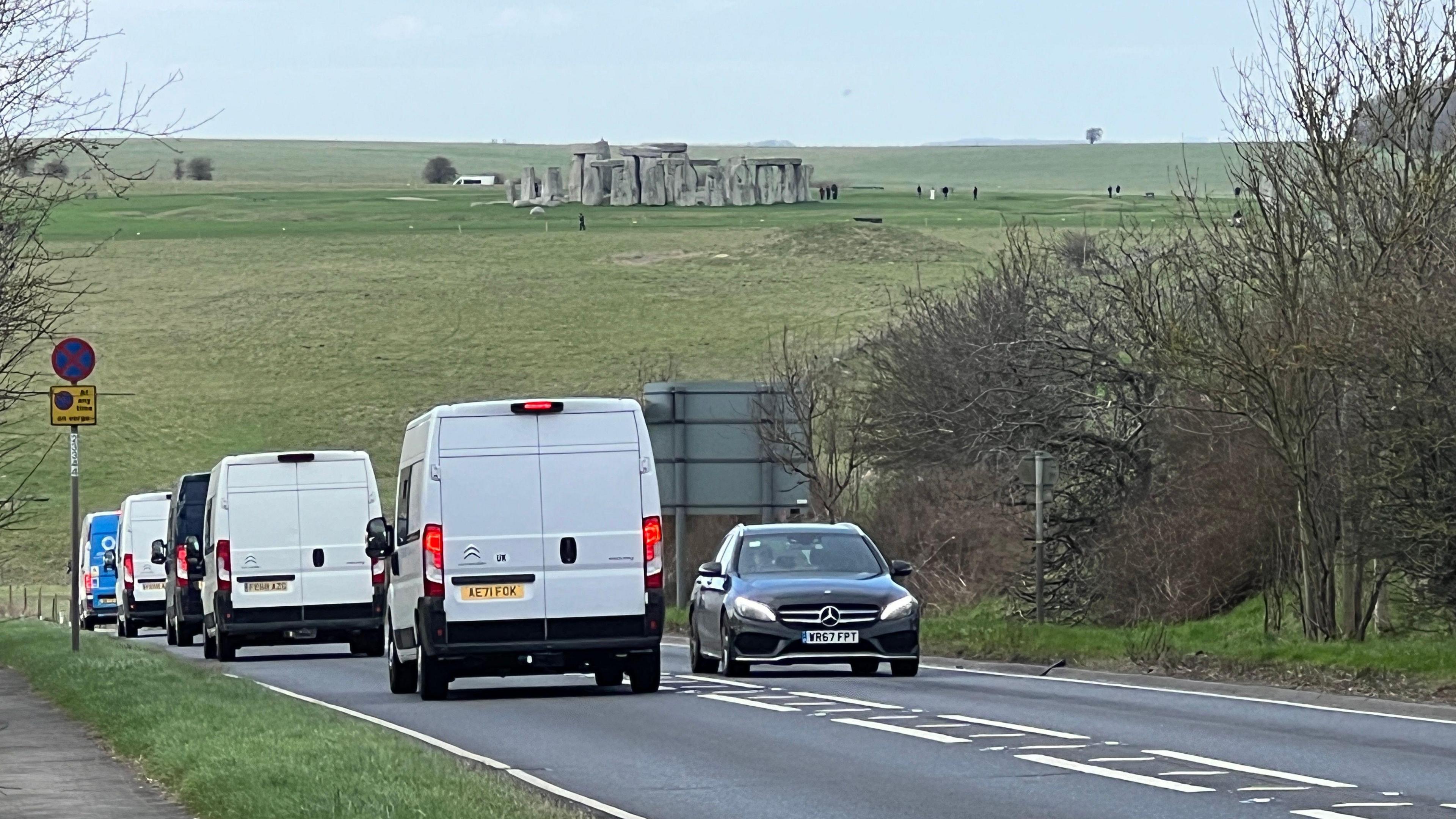
The A303 past Stonehenge has been a contentious issue for decades that makes worldwide news
The candidates were challenged to give short answers to a few Wiltshire issues - including the A303 traffic.
It has been a decades-long argument and the government has now ditched the plans to build a tunnel past Stonehenge.
All acknowledged the problem and a couple suggested alternatives, but the Conservative's Richard Clewer was the only one wanting to lobby to get the tunnel "back on the table".
On Wiltshire Council's commitment to going net zero by 2030, all parties backed it - except for Reform. Edward Kirk said: "I don't think it's achievable and I don't think it's value for money."
Housing
Planning and development is a constant source of controversy in Wiltshire - but there are also issues with a lack of housing, including affordable homes.
Mr Fisher supported national government targets but said "it's absolutely about building the right homes in the right places".
He said building 500 council homes a year is "completely doable".
However, Mr Clewer said Mr Fisher was "on a different planet" if he thought government funding will cover 500 council homes a year.
He said more than 1,200 are being built in Wiltshire, many funded locally, but that "the system is completely stacked against councils".
Mr Thorn is not in favour of the government's house building targets: "What we need to do is ensure we have a local plan that is defensible."
Mr Baseley wants to see more small homes in town centres: "We don't want to have the greenbelts of our countryside littered with endless three to four-bedroom developments."
Mr Kirk from Reform felt that developers "run the show" and there there needs to be more "community-led decisions".
Analysis: Dan O'Brien, Wiltshire Political Reporter
I'm struck by how the different party's pitches vary not simply in content but in tone in these Wiltshire elections.
The Liberal Democrats, the longstanding main opposition party, see this election as their best opportunity to seize control.
They've picked up potholes as "the number one issue", with their local leader proposing the council borrow money - take on debt - to find the cash to quickly bring improvements.
Promising "compassion" in spending decisions, they were quick to take aim at the cuts they've campaigned against over the years in areas like elderly lunch clubs - but the fact is Wiltshire doesn't have the same list of cutbacks most councils have experienced.
The Conservatives are clearly proud of their record on Wiltshire Council, stabilising its finances and finding millions to invest in roads, leisure centres, and children's services. Most political campaigns promise "change" - but that's palpably not what the Conservatives are trying to convey here.
Labour made much of the difference they say the new government has made to investment in local roads and council house funding, and its plans for a national care service - but clashed with the Tories over how far the promised cash would really go.
There were snorts of derision from Labour and Conservatives when Reform's candidate suggested Wiltshire take inspiration from "Doge" to identify waste, a reference to the government efficiency department set up in the US by President Trump, led by Elon Musk.
But more broadly Reform's pitch here seems to be around bringing - and these are their words - more "normal people" with "common sense" into political decision-making.
The Greens meanwhile push for changes in approach to the affordability and suitability of new housing - and seem more open than most to potential local tax rises, their candidate saying "we all grow richer as a society if we contribute more to make sure everybody's needs are met".
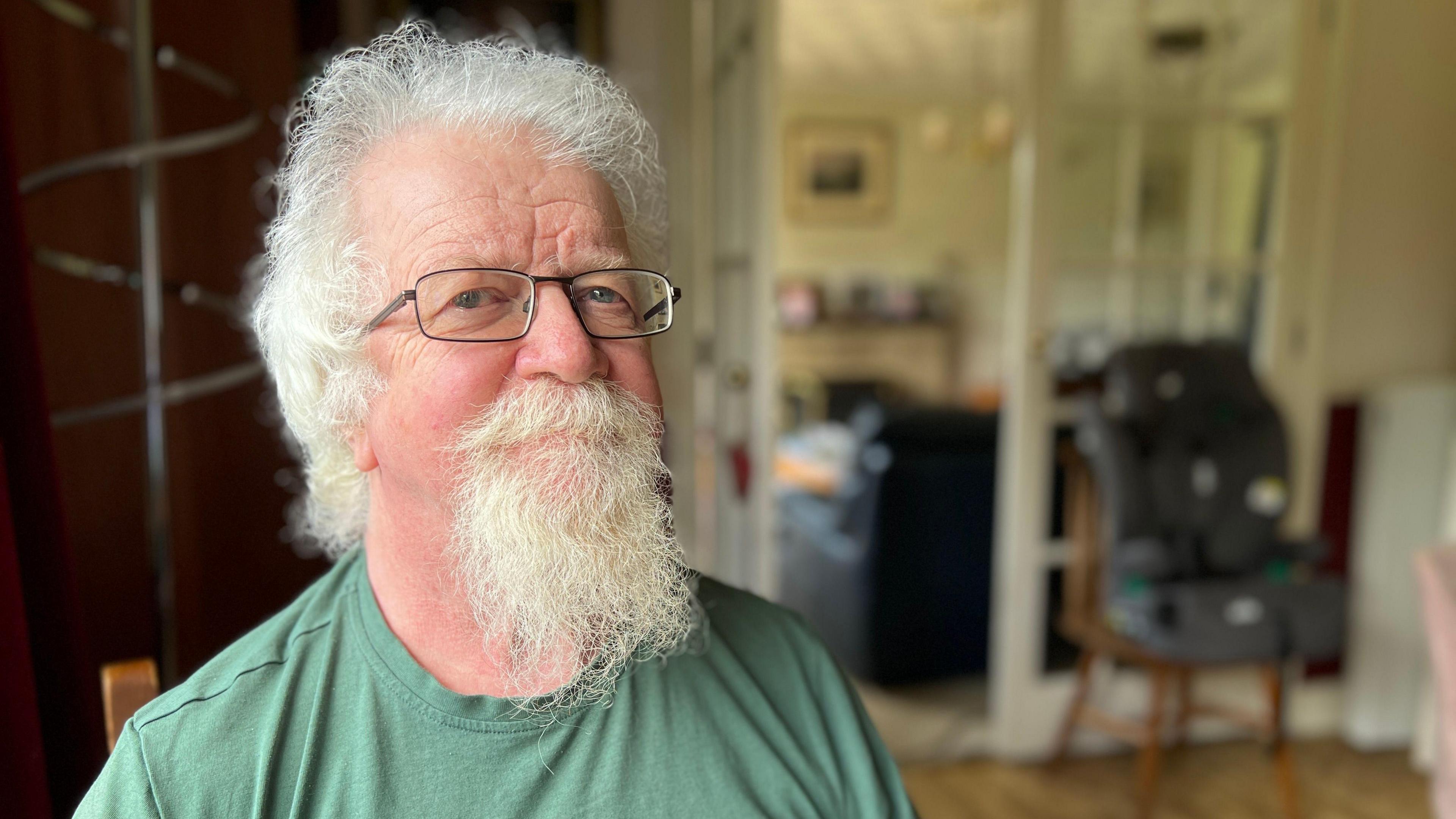
Ernie Clark is one of the longstanding independent councillors in Wiltshire
Outside the main parties
Across Wiltshire, 18 candidates describe themselves as independent. While none are tied to a political party, sometimes independent candidates join together to give themselves a bigger voice on council business.
The leader of that group, longstanding councillor Ernie Clark, told the BBC: "The fact that we're independent doesn't mean we don't get involved in bigger items, it's just that we can take our own views and not just trot the party line," he added.
"We're local people dealing with local issues, getting local solutions to them," he said.
"I'm not aware of any independents who don't stand for the division they live in."
Polling day is 1 May, with ballots either cast on the day at a polling station, or sent in advance by post. Official ID is also expected.
Results should be through late afternoon or early evening on 2 May.
There are no elections for Swindon Borough Council this year.
Get in touch
Tell us which stories we should cover in Wiltshire
Follow BBC Wiltshire on Facebook, external, X, external and Instagram, external. Send your story ideas to us on email or via WhatsApp on 0800 313 4630.
- Published4 April
